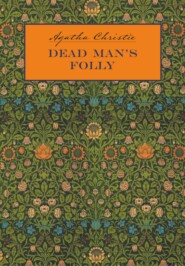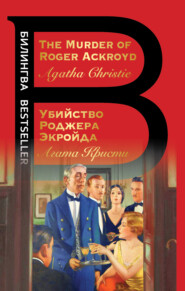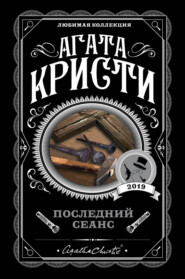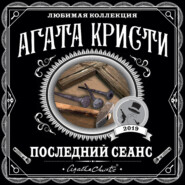По всем вопросам обращайтесь на: info@litportal.ru
(©) 2003-2024.
✖
Hallowe’en Party
Автор
Год написания книги
2019
Настройки чтения
Размер шрифта
Высота строк
Поля
‘You ought to have the Snapdragon in the library, it’s much the darkest room.’
‘No, we’re going to have that in the dining-room.’
‘We’ll have to put something on the table first.’
‘There’s a green baize to put on that and then the rubber sheet over it.’
‘What about the looking-glasses? Shall we really see our husbands in them?’
Surreptitiously removing her shoes and still quietly champing at her apple, Mrs Oliver lowered herself once more on to the settee and surveyed the room full of people critically. She was thinking in her authoress’s mind: ‘Now, if I was going to make a book about all these people, how should I do it? They’re nice people, I should think, on the whole, but who knows?’
In a way, she felt, it was rather fascinating not to know anything about them. They all lived in Woodleigh Common, some of them had faint tags attached to them in her memory because of what Judith had told her. Miss Johnson—something to do with the church, not the vicar’s sister. Oh no, it was the organist’s sister, of course. Rowena Drake, who seemed to run things in Woodleigh Common. The puffing woman who had brought in the pail, a particularly hideous plastic pail. But then Mrs Oliver had never been fond of plastic things. And then the children, the teenage girls and boys.
So far they were really only names to Mrs Oliver. There was a Nan and a Beatrice and a Cathie, a Diana and a Joyce, who was boastful and asked questions. I don’t like Joyce much, thought Mrs Oliver. A girl called Ann, who looked tall and superior. There were two adolescent boys who appeared to have just got used to trying out different hair styles, with rather unfortunate results.
A smallish boy entered in some condition of shyness.
‘Mummy sent these mirrors to see if they’d do,’ he said in a slightly breathless voice.
Mrs Drake took them from him.
‘Thank you so much, Eddy,’ she said.
‘They’re just ordinary looking hand-mirrors,’ said the girl called Ann. ‘Shall we really see our future husbands’ faces in them?’
‘Some of you may and some may not,’ said Judith Butler.
‘Did you ever see your husband’s face when you went to a party—I mean this kind of a party?’
‘Of course she didn’t,’ said Joyce.
‘She might have,’ said the superior Beatrice. ‘E.S.P. they call it. Extra sensory perception,’ she added in the tone of one pleased with being thoroughly conversant with the terms of the times.
‘I read one of your books,’ said Ann to Mrs Oliver. ‘The Dying Goldfish. It was quite good,’ she said kindly.
‘I didn’t like that one,’ said Joyce. ‘There wasn’t enough blood in it. I like murders to have lots of blood.’
‘A bit messy,’ said Mrs Oliver, ‘don’t you think?’
‘But exciting,’ said Joyce.
‘Not necessarily,’ said Mrs Oliver.
‘I saw a murder once,’ said Joyce.
‘Don’t be silly, Joyce,’ said Miss Whittaker, the school-teacher.
‘I did,’ said Joyce.
‘Did you really?’ asked Cathie, gazing at Joyce with wide eyes, ‘really and truly see a murder?’
‘Of course she didn’t,’ said Mrs Drake. ‘Don’t say silly things, Joyce.’
‘I did see a murder,’ said Joyce. ‘I did. I did. I did.’
A seventeen-year-old boy poised on a ladder looked down interestedly.
‘What kind of a murder?’ he asked.
‘I don’t believe it,’ said Beatrice.
‘Of course not,’ said Cathie’s mother. ‘She’s just making it up.’
‘I’m not. I saw it.’
‘Why didn’t you go to the police about it?’ asked Cathie.
‘Because I didn’t know it was a murder when I saw it. It wasn’t really till a long time afterwards, I mean, that I began to know that it was a murder. Something that somebody said only about a month or two ago suddenly made me think: Of course, that was a murder I saw.’
‘You see,’ said Ann, ‘she’s making it all up. It’s nonsense.’
‘When did it happen?’ asked Beatrice.
‘Years ago,’ said Joyce. ‘I was quite young at the time,’ she added.
‘Who murdered who?’ said Beatrice.
‘I shan’t tell any of you,’ said Joyce. ‘You’re all so horrid about it.’
Miss Lee came in with another kind of bucket. Conversation shifted to a comparison of buckets or plastic pails as most suitable for the sport of bobbing for apples. The majority of the helpers repaired to the library for an appraisal on the spot. Some of the younger members, it may be said, were anxious to demonstrate, by a rehearsal of the difficulties and their own accomplishment in the sport. Hair got wet, water got spilt, towels were sent for to mop it up. In the end it was decided that a galvanized bucket was preferable to the more meretricious charms of a plastic pail which overturned rather too easily.
Mrs Oliver, setting down a bowl of apples which she had carried in to replenish the store required for tomorrow, once more helped herself to one.
‘I read in the paper that you were fond of eating apples,’ the accusing voice of Ann or Susan—she was not quite sure which—spoke to her.
‘It’s my besetting sin,’ said Mrs Oliver.
‘It would be more fun if it was melons,’ objected one of the boys. ‘They’re so juicy. Think of the mess it would make,’ he said, surveying the carpet with pleasurable anticipation.
Mrs Oliver, feeling a little guilty at the public arraignment of greediness, left the room in search of a particular apartment, the geography of which is usually fairly easily identified. She went up the staircase and, turning the corner on the half landing, cannoned into a pair, a girl and a boy, clasped in each other’s arms and leaning against the door which Mrs Oliver felt fairly certain was the door to the room to which she herself was anxious to gain access. The couple paid no attention to her. They sighed and they snuggled. Mrs Oliver wondered how old they were. The boy was fifteen, perhaps, the girl little more than twelve, although the development of her chest seemed certainly on the mature side.
Apple Trees was a house of fair size. It had, she thought, several agreeable nooks and corners. How selfish people are, thought Mrs Oliver. No consideration for others. That well-known tag from the past came into her mind. It had been said to her in succession by a nursemaid, a nanny, a governess, her grandmother, two great-aunts, her mother and a few others.
‘Excuse me,’ said Mrs Oliver in a loud, clear voice.
The boy and the girl clung closer than ever, their lips fastened on each other’s.
‘Excuse me,’ said Mrs Oliver again, ‘do you mind letting me pass? I want to get in at this door.’

















